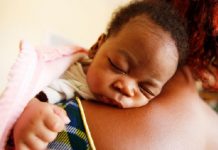
The Minister of Health, Dr Osagie Ehanire, says Social And Behaviour Change (SBC) is a primary enabler for health promotion in the country.
Ehanire, represented by Mrs Ladidi Bako-Aiyegbusi, Director and Head of Health Promotion Division, FMOH,said this on Thursday in Abuja.
He spoke at the end of a dissemination meeting of the USAID’s Global Health Bureau flagship, SBC RESEARCH and evaluation project in Nigeria.
The News Agency of Nigeria (NAN) reports that the project brought together the expertise of five stellar consortium partners.
The are Population Council (lead), Tulane University, Avenir Health, ideas42, Population Reference Bureau (PRB) and the Institute for Reproductive Health at Georgetown University.
The minister said that an overarching integrated approach, which comprised interpersonal, mid-media and intensive media, including vibrant social media, could serve as catalytic change agents in health promotion in the country.
While commending USAID’s Global Health Bureau and other stakeholders on the project, he said the project would equip the country with the data and evidence it needed to integrate proven and cost-effective social and behaviour change approaches into its programmes.
He said behaviour was a complex phenomenon, influenced by factors within the individual and beyond.
He said this was why the key evidence and insights from the project would be prioritised in the country’s Strategic Plan for Health Promotion Review by 2024.
Ms Sarah Werth, USAID Deputy Mission Director, said Breakthrough RESEARCH catalysed SBC by conducting state-of-the-art research and evaluation and promoting evidence-based solutions to improve health and development programmes around the world.
Werth said this was in partnership with a range of stakeholders, Breakthrough RESEARCH was identifying key evidence gaps and developing consensus-driven research agenda to guide priority investments in SBC RESEARCH Programmes, and policy.
She said that the project was positively shifting health-seeking behaviours, improving provider behaviour, and fostering supportive social norms.
“Using cutting-edge research and evaluation methods, Breakthrough RESEARCH is addressing key questions related to SBC programming.
Such questions included: “What works?” “How can it work best?” “How much does it cost?” “Is it cost-effective?” “How can it be replicated, scaled, and sustained locally?”
Dr Paul Hutchinson, Technical Lead, Breakthrough RESEARCH, Nigeria Tulane University, New Orleans, said the aim was to assess the effectiveness of integrated versus malaria-only SBC on malaria, family planning, MNCH+N behaviours and ideations among pregnant women and those with under 2 years children.
Hutchinson said that Behavioural Sentinel Surveillance (BSS) measured priority behavioural outcomes, including
Malaria and family planning.
He said that BSS measured psychosocial influences or ideations – cognitive, emotional, social – theorised as intermediate determinants of behavioural outcomes.
He said that the study populations were pregnant women and women with a child under 2 years living within Breakthrough ACTION programme areas in the 3 states (not representative at the state level).
He said that the study design was a cross-sectional and cohort components quasi-experimental and dose-response design and was conducted in September 2019, with midline and end-line plan.
He said that the sample size was 3,032 pregnant women and 3,043 women with a child under 2 years.
The sample methods were 108 wards across three states; census of pregnant women and random selection of women with children under 2 years.
According to him, data analysis, predicted probabilities of outcomes were derived, using mixed-effects logistic regression models adjusted for ideational and sociodemographic variables – wealth, age, education and employment (respondent and spouse).
He said that the BSS baseline results were a first step for assessing the effectiveness and cost- benefit of integrated versus malaria-only SBC programs in Nigeria.
Meanwhile, Dr Laura Reichenbach, Breakthrough RESEARCH Project Director, Population Council Washington, said USAID/Nigeria invested in Breakthrough-Research/Nigeria (B-R/N), since 2019.
It was aimed to expand the evidence-based on integrated, multi-component health Programme and address priority programmatic research questions pertaining to SBC for Maternal and Child Health/Family Planning and Reproductive Health and malaria.
Reichenbach said that B-R/N would work closely with its sister project, Breakthrough ACTION/Nigeria (B-A/N), to generate evidence that informed programme implementation and adaptation.
She said that B-A/N was implementing SBC programming in eleven states and the Federal Capital Territory (FCT).
“B-R/N will work in a subset of these states, with a particular focus on those states where B-A/N implements integrated and malaria-only SBC Programmes (Sokoto, Kebbi, Bauchi, Zamfara).
“B-R/N Project is wrapping up its project activities in the country and it’s part of the end-of-project activities,” she said.
(NAN)(www.nannews.ng).











